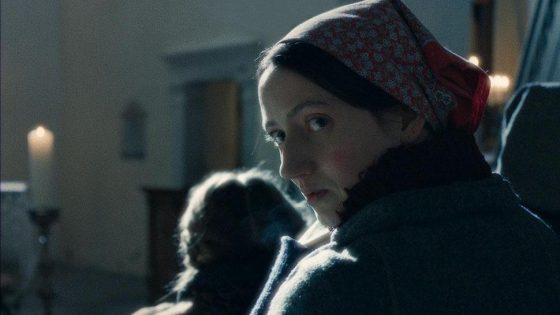Maura Delpero’s “Vermiglio,” which recently won the Venice Film Festival’s Silver Lion and is Italy’s international Oscars contender, is scoring stellar returns at the local box office and fast becoming the country’s indie darling.
The intimate period drama, which is largely spoken in Northern Italian dialect and is playing with Italian-language subtitles in local cinemas, has been rapidly turning into a surprise local box office sensation, gradually going from a 26 screen micro-release on Sept. 19 via distributor Lucky Red to a much wider 340-screen outing this past weekend.
“Vermiglio,” now in its third frame, this past weekend clocked in second only to “Joker: Folie à Deux,” according to national box office compiler Cinetel.
The film has so far pulled €1.2 million ($1.3 million), which makes it “the top Italian indie film of 2024,” said Lucky Red head of theatrical Gabriele D’Andrea. He noted that “Vermiglio” will wind up outperforming the Italian box office results of recent titles by big-name Italian directors such as Luca Guadagnino’s “Bones and All” and Alice Rohrwacher’s “La Chimera.”
Lucky Red decided to start small with “Vermiglio’s” release, even after the film had won the Venice Silver Lion, and expand when the film was chosen as Italy’s Oscar candidate. Widening its release once the film had gained more word-of-mouth “has proved to be a good way to build buzz,” D’Andrea said.
“Vermiglio” is set at the end of World War II in an Alpine village, where the arrival of a soldier causes disruption in the dynamics between three sisters. It marks director Maura Delpero’s follow-up to “Maternal,” which takes place in an Argentinian refuge for teenage mothers run by nuns and made a splash on the festival circuit.
In her Variety review, critic Jessica Kiang called “Vermiglio” “quietly breathtaking,” going on to note that the film “unfolds from tiny tactile details of furnishings and fabrics and the hide of a dairy cow, into a momentous vision of everyday rural existence in the high Italian Alps.”
Leonardo Guerra Seràgnoli, who is one of the film’s producers, said that the film’s appeal lies in the fact that its WWII setting is still part of Italy’s “collective consciousness,” noting that “it’s the story of our grandparents; it’s still part of family lore.” At the same time, it’s a “story that has some similarities with what we are living today when we are surrounded by a war,” he added.
Guerra Seràgnoli also pointed out the thematic similarities between “Vermiglio” and Italy’s feminist dramedy “There’s Still Tomorrow,” directed by Paola Cortellesi, that follows the plight of an abused housewife in post-war Rome and last year scored record-breaking numbers at Italy’s box office.
“It’s possible that ‘There’s still Tomorrow’ paved the way for this success,” Guerra Seràgnoli said, noting that there is a strong interest in Italy for films by female directors “that show an Italy of the past” from a female perspective.
“Vermiglio,” which has been widely sold by French distributor Charades and will be playing at a slew of upcoming festivals, is produced by Guerra Seràgnoli, Francesca Andreoli, Delpero and Santiago Fondevila Sancet. The film is co-produced by Carole Baraton, Pauline Boucheny Pinon, Jacques-Henry Bronckart and Tatiana Kozar. “Vermiglio” is a co-production between Cinedora and RAI Cinema and is also co-produced by Charades Production and Versus Production, with the participation of Anonymous Content.
Source Agencies



